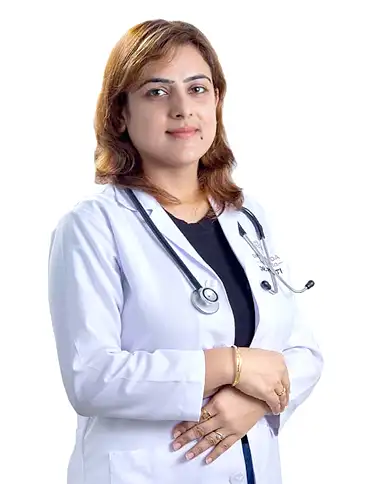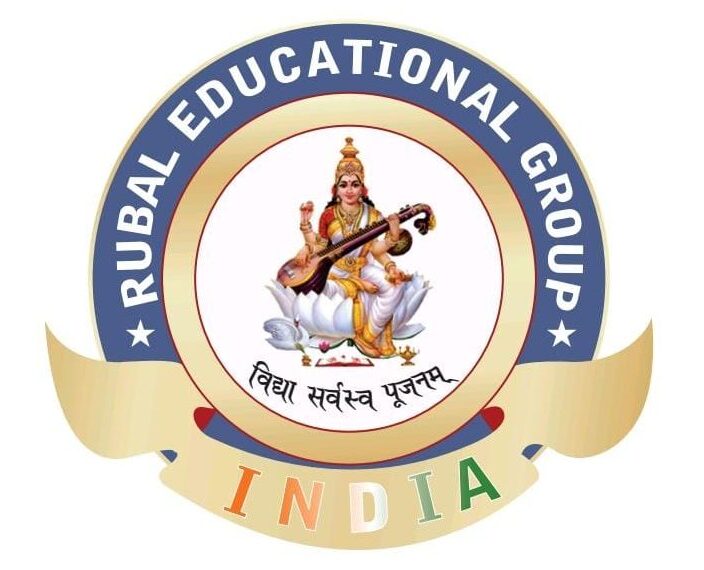B.A.M.S
Are you interested to do a Ayurvedic doctors Course? Yes! Then, B.A.M.S is the best course for you after 12th.

Certainly, here’s a point-wise breakdown of Bachelor of Ayurvedic Medicine and Surgery (BAMS):
Duration: Typically a 5.5-year program including a one-year internship.
Curriculum:
- Basic Medical Sciences: Anatomy, Physiology, Biochemistry, Pathology, Microbiology, Pharmacology.
- Preclinical Subjects: Ayurvedic Basic Principles, Sanskrit, Samhitas, Siddhanta, Padartha Vigyan.
- Paraclinical Subjects: Forensic Medicine, Toxicology, Community Medicine.
Internship: A one-year rotating internship in various departments of Ayurvedic hospitals or clinics.
Clinical Training: Focuses on diagnosing illnesses, prescribing Ayurvedic remedies, and administering treatments like Panchakarma therapies, herbal formulations, and lifestyle modifications.
Examinations: Both theoretical and practical exams evaluate knowledge, clinical skills, and proficiency in Ayurvedic principles.
Career Opportunities:
- Private Practice: Establishing clinics or wellness centers.
- Government Jobs: Working in hospitals, dispensaries, or research institutions.
- Teaching and Research: Academic careers in Ayurvedic colleges or research.
यदि आप यह कोर्स करना चाहते हैं तो दिए गए नंबर पर हमें कॉल करें।
Eligibility Criteria Of B.A.M.S
The eligibility criteria for Bachelor of Ayurvedic Medicine and Surgery (B.A.M.S) typically vary slightly from one institution to another, but generally, the following guidelines are commonly observed:
Educational Qualifications:
- Candidates should have completed their 10+2 education from a recognized board or its equivalent with Physics, Chemistry, and Biology as compulsory subjects. Some institutions might also require English as a compulsory subject.
Minimum Marks Requirement:
- A minimum aggregate of 50% marks in the qualifying examination (10+2) is commonly required. However, this percentage may vary depending on the institution and the prevailing norms.
Age Limit:
- The age limit for admission to B.A.M.S. courses typically ranges from 17 to 25 years. However, this can also vary based on the institution and regional regulations.
Entrance Examinations:
- Many universities and colleges conduct entrance examinations for admission to B.A.M.S. programs. These exams may include subjects like Physics, Chemistry, Biology, and sometimes, General Knowledge.
- Some prominent entrance exams for B.A.M.S. in India include NEET (National Eligibility cum Entrance Test), AIAPGET (All India AYUSH Post Graduate Entrance Test), and state-level entrance exams conducted by respective authorities.
Reservation Criteria:
- Reservation policies based on caste, tribe, or other categories might apply as per government regulations in some regions. Candidates belonging to reserved categories often have specific relaxation in the eligibility criteria, such as in the minimum marks requirement or age limit.
Physical Fitness:
- Some institutions may require candidates to meet specific physical fitness standards as per their regulations.
Language Proficiency:
- Proficiency in the language of instruction (often English or the regional language) may be required.
Document Requirements:
- Candidates are typically required to submit relevant documents such as mark sheets, birth certificate, category certificate (if applicable), and any other documents specified by the institution.
Syllabus Of B.A.M.S
Pre-Clinical Subjects:
- Anatomy
- Physiology
- Biochemistry
- Yoga and Naturopathy
Para-Clinical Subjects:
- Pathology
- Microbiology
- Pharmacology
- Forensic Medicine and Toxicology
- Preventive and Social Medicine (Community Medicine)
Clinical Subjects:
- Kayachikitsa (Internal Medicine)
- Shalya Tantra (Surgery)
- Shalakya Tantra (Ophthalmology and ENT)
- Prasuti Tantra & Stri Roga (Obstetrics and Gynecology)
- Kaumarabhritya (Pediatrics)
- Panchakarma (Ayurvedic Therapies)
- Agada Tantra (Toxicology)
- Rasa Shastra & Bhaishajya Kalpana (Pharmaceutical Sciences)
Ayurvedic Sciences:
- Basic Principles and Fundamental Concepts of Ayurveda
- Dravyaguna (Pharmacology and Pharmacognosy)
- Rasa Shastra (Mineral and Metallic Pharmacology)
- Agada Tantra (Toxicology)
- Swasthavritta (Preventive and Social Medicine)
Clinical Training and Practical Experience:
- Clinical postings in various departments
- Practical training in Ayurvedic therapies and procedures
- Hands-on experience in diagnosis, treatment, and management of diseases
Research Methodology and Medical Ethics:
- Basics of research methodology
- Ethical considerations in medical practice and research
Internship:
- A one-year mandatory rotating internship in hospitals
- Practical training in patient care, diagnosis, and treatment
- Rotations in different specialties to gain comprehensive clinical experience
Course Duration Of B.A.M.S
The Bachelor of Ayurvedic Medicine and Surgery (B.A.M.S) course duration typically spans a period of five and a half years, divided into several phases:
Pre-Clinical Phase: This phase usually lasts for 1.5 to 2 years and covers fundamental subjects such as Anatomy, Physiology, and Biochemistry. During this phase, students also learn about the basic principles and concepts of Ayurveda.
Para-Clinical Phase: This phase generally lasts for about 1 year and includes subjects like Pathology, Microbiology, Pharmacology, and Forensic Medicine. Students gain knowledge about the pathological basis of diseases and pharmaceutical sciences.
Clinical Phase: The clinical phase typically extends over 2 years and involves clinical postings where students get hands-on experience in various departments such as Kayachikitsa (Internal Medicine), Shalya Tantra (Surgery), Shalakya Tantra (Ophthalmology and ENT), and Prasuti Tantra & Stri Roga (Obstetrics and Gynecology). This phase focuses on the diagnosis, treatment, and management of diseases using Ayurvedic principles.
Internship: Following the completion of the academic curriculum, students are required to undergo a one-year mandatory rotating internship. During this period, they work in hospitals under the supervision of experienced practitioners to gain practical experience in patient care, diagnosis, and treatment.
The internship provides students with an opportunity to apply the theoretical knowledge gained during the academic years in a real-world clinical setting. Upon successful completion of the internship, students are awarded the B.A.M.S degree, making them eligible to practice as Ayurvedic physicians or pursue higher education and specialization in various fields of Ayurveda.
Job Specialization Of B.A.M.S
Bachelor of Ayurvedic Medicine and Surgery (B.A.M.S) graduates have various job specialization options within the field of Ayurveda. Here are some common specializations:
Kayachikitsa (Internal Medicine): Specializing in the diagnosis and treatment of internal diseases using Ayurvedic principles and therapies.
Shalya Tantra (Surgery): Focusing on surgical procedures in Ayurveda, including both general and specialized surgeries.
Shalakya Tantra (Ophthalmology and ENT): Specializing in the diagnosis and treatment of diseases related to the eyes, ears, nose, and throat.
Prasuti Tantra & Stri Roga (Obstetrics and Gynecology): Specializing in women’s health, including prenatal care, childbirth, and management of gynecological disorders.
Kaumarabhritya (Pediatrics): Specializing in pediatric care, including child health, growth, and development.
Panchakarma Therapy: Specializing in detoxification and rejuvenation therapies using Panchakarma techniques such as Vamana (emesis), Virechana (purgation), Basti (enema), Nasya (nasal therapy), and Raktamokshana (bloodletting).
Rasayana and Vajikarana: Specializing in rejuvenation therapy (Rasayana) and aphrodisiac therapy (Vajikarana) to promote longevity, vitality, and reproductive health.
Agada Tantra (Toxicology): Specializing in the diagnosis and treatment of poisoning and toxicological conditions.
Swasthavritta (Preventive and Social Medicine): Focusing on preventive healthcare measures, lifestyle management, and community health.
Academic and Research Career: Pursuing further studies, research, and teaching in Ayurvedic institutions, universities, and research organizations.
Clinical Practice: Establishing a private practice or working in Ayurvedic hospitals, clinics, wellness centers, or spas.
Consultancy: Providing consultancy services in Ayurveda, including formulation development, quality control, and regulatory affairs.
These specializations allow B.A.M.S graduates to focus on specific areas of interest within Ayurveda and develop expertise in those areas, leading to rewarding career opportunities in healthcare, research, education, and wellness sectors.

